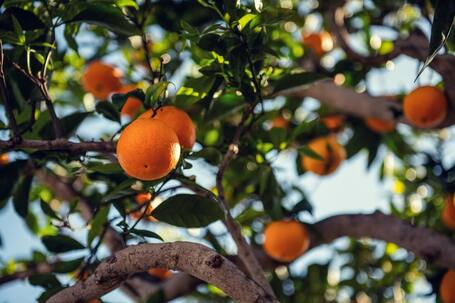In Judaism God is the sole creator of the universe and with it also the Earth and all its inhabitants. All of Creation praises God, who governs and sustains nature. Through the observation of nature, one cannot help but notice the presence of order and wise design manifested in a world where nothing is superfluous.
Because humans were created on the sixth day of the Creation, they are often regarded as superior to other animals. This idea also stems from the interpretation of God’s first commandment to humans: “replenish the earth … and have dominion over it” (Genesis 1:28). However, other interpreters believe that humans have a responsible stewardship over God’s Creation and should treat it carefully and with compassion. The Torah points out that humans should take care of other species and cultivate and preserve the Earth. The commandment to give dignity to all things created by God thus also prescribes sensitivity towards all creatures and our planet.
Because humans were created on the sixth day of the Creation, they are often regarded as superior to other animals. This idea also stems from the interpretation of God’s first commandment to humans: “replenish the earth … and have dominion over it” (Genesis 1:28). However, other interpreters believe that humans have a responsible stewardship over God’s Creation and should treat it carefully and with compassion. The Torah points out that humans should take care of other species and cultivate and preserve the Earth. The commandment to give dignity to all things created by God thus also prescribes sensitivity towards all creatures and our planet.
|
We find concrete examples of ecological concern in Jewish law
(halakhah), which provides protection for fruit trees even during times
of war and debates over damage caused by smoke. Jewish teachings also
give many examples of the need to treat farm animals well. They should
always be allowed to eat well while they work and to rest on the
Sabbath.
(Fruit) Trees even have their own day of celebration: Tu BiShvat, the New Year of the Trees or Israeli Arbor Day. Tu BiShvat once indicated the end of winter and the beginning of the ideal planting period in Israel. Today it is connected with different environmental actions and celebrated with festive ceremonies with meals featuring a variety of fruits. |

